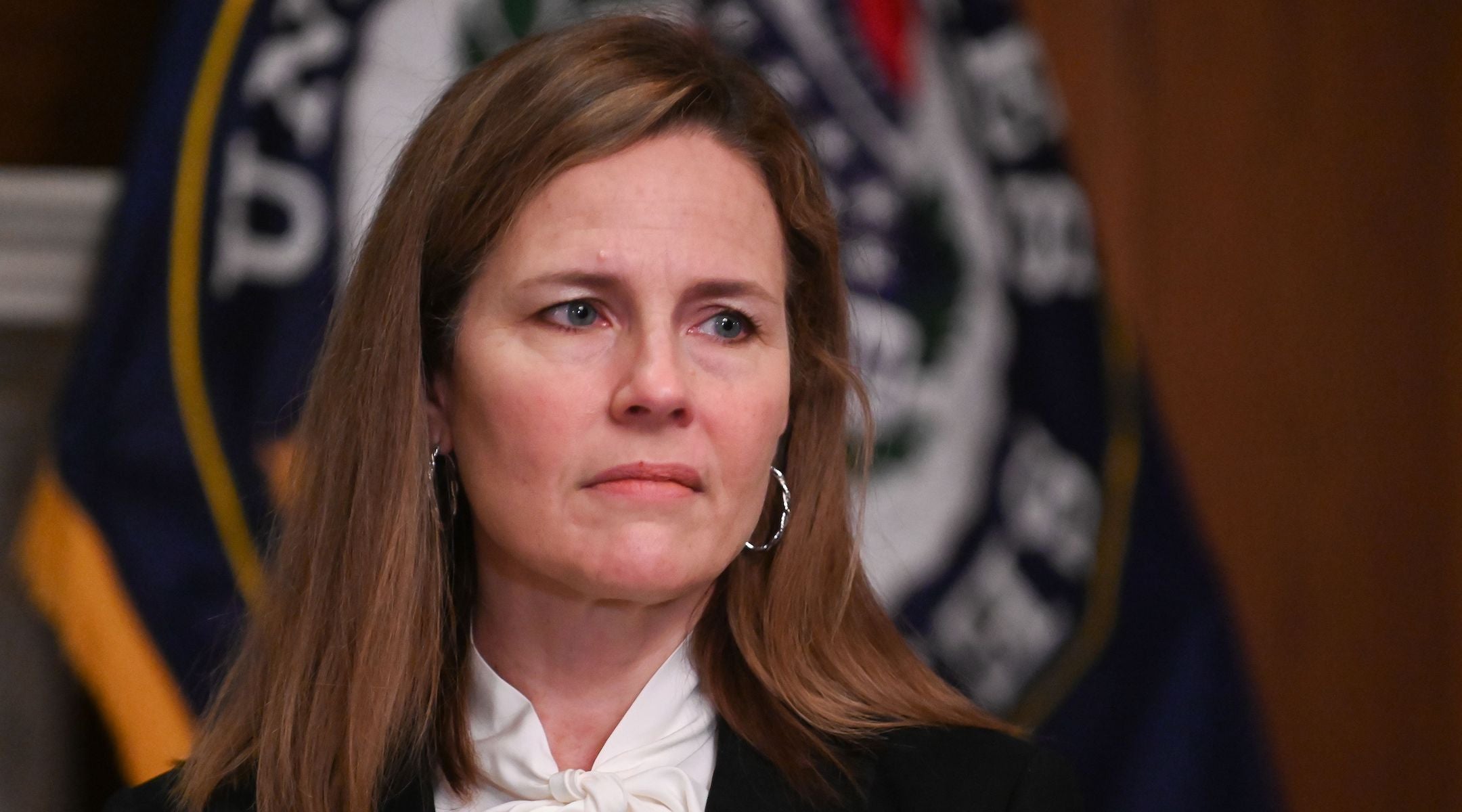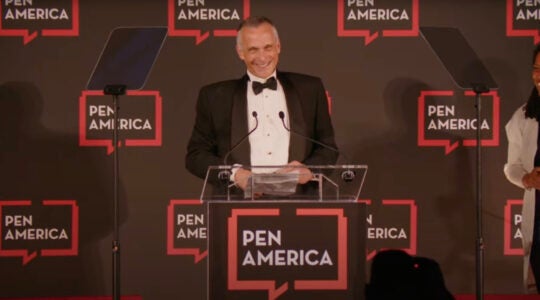WASHINGTON (JTA) — Amy Coney Barrett, the newest justice on the Supreme Court, asked a Maine state official how he would treat a school that based its teachings about the “Jewish-Palestinian” conflict on how it regarded Jews.
Justice Neil Gorsuch, meanwhile, suggested the state’s school-funding policy poses an undue burden on Orthodox Jewish parents who send their children to religious day schools.
Their questions came Wednesday in an important church-state case challenging Maine’s ban on the use of state funds for tuition at religious schools, while subsidizing tuition in certain cases for non-religious private schools.
Church-state separation groups and conservative religious advocacy groups alike are closely watching Carson v. Makin, saying it could have far-reaching consequences for federal, state and local governments that ban funding for religious instruction.
Coney Barrett was seeking a clarification from Christopher Taub, the state’s chief deputy attorney general. He defended the state’s policy of not paying for tuitions at religious schools by saying that a state would also not fund schools that teach that a particular religion or all religions are bad.
“How would you even know if a school taught ‘All religions are bigoted or biased’ or ‘Catholics are bigoted’, or, you know, ‘we take a position on the Jewish-Palestinian conflict because of our position on, you know, Jews,’ right?” Barrett said.
Barrett’s hypothetical did not specify which position the school was taking, nor if its position on Jews was positive or negative. It did, however, seem to equate certain kinds of anti-religious bias with certain attitudes on what is more conventionally referred to as the Israeli-Palestinian conflict.
Barrett, a Catholic conservative, appeared to be picking at Maine’s argument that the state’s policy was religion-neutral. She suggested that while religious schools are automatically denied the funding, the state would have to take proactive measures to assess whether non-religious schools are teaching bias.
The question is relevant because Maine’s argument notes that one of the two schools in the lawsuit that was denied funding requires ninth graders to “refute the teachings of the Islamic religion with the truth of God’s Word.”
Taub’s response was that the state is deeply engaged with the curricula in public schools and in the private schools that receive state-subsidized tuitions.
Maine is one of two states that allows parents in districts without a high school to use state funds to send their children to a private school rather than bus them to a school in a neighboring district. Religious schools are banned from using the funding, and two sets of parents have sued, saying the practice is unconstitutional.
Jewish groups have lined up on opposite sides in the case. In friend-of-the-court briefs, the Anti-Defamation League sided with Maine and the Orthodox Union supports the parents.
The conservative justices in their questions several times suggested the policy poses an undue burden on Orthodox Jewish parents.
Gorsuch said that one of Maine’s arguments, that religious instruction remains available to parents outside the school framework in after-school or Sunday school settings, was offensive to Orthodox Jews.
“To the Orthodox Jewish family it is a burden, and to the Protestant family it would not be,” Gorsuch said.
Barrett replaced Ruth Bader Ginsburg, who was the leader of the court’s liberal minority when she died in September last year, just two months before the presidential election.
JTA has documented Jewish history in real-time for over a century. Keep our journalism strong by joining us in supporting independent, award-winning reporting.






